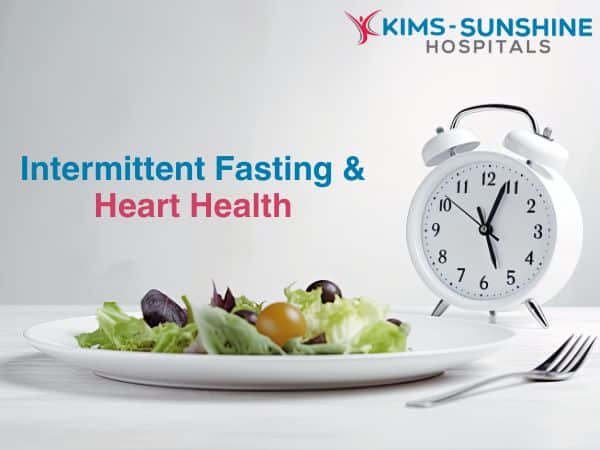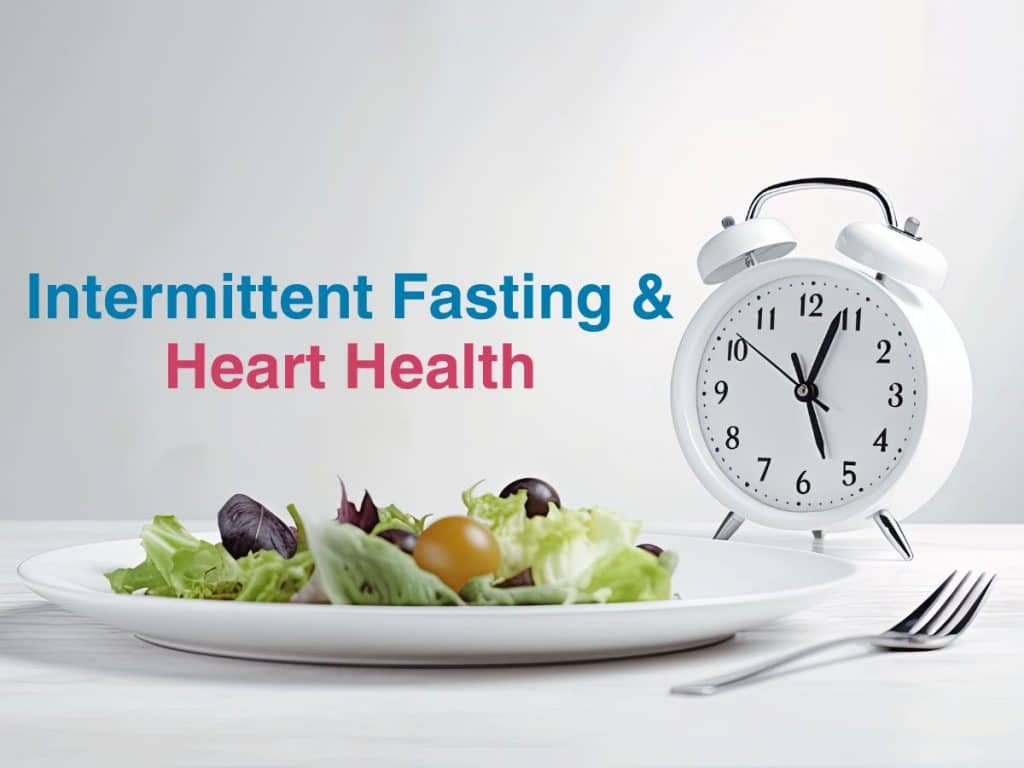
Intermittent Fasting & Heart Health

Introduction
Gone are the days when a diet would tell you what to eat, and how much. Intermittent Fasting (IF) is the new mantra these days. Now it is more about when to eat – i.e. the time interval between meals. You end up switching between
fasting and eating like always. An example is to eat your last meal of the day by 6 pm. Have you heard of our mothers fasting on Fridays or Thursdays? Doing a “vrat” or fast once a week was almost a norm a few years ago for us Indians.
This is because after a meal is digested, our body switches its metabolic gear to begin burning fat. The 16/8 fasting rule is very easy to understand – eat all meals in 8 hours and fast for 16 hours afterward. Another strategy is to
fast one day per week (5:2 plan) – Monday, Thursday, or Friday (eating only one meal on that day and NOT starving is key) and continue to eat as usual on the rest of the days. You can continue to have water, tea, or black coffee as they
are not calorie-rich when you are fasting.
Effects of Intermittent Fasting on Heart Health
A recent study conducted in the USA has highlighted the reverse though – fasting for 16 hours or longer has been linked to a greater risk of heart disease. This may not be true as the study was not interpreted in the right way by the
various parties involved. It was just highlighting a possible link between intermittent fasting and an increased incidence of heart disease. Remember that causation does NOT equal correlation. There was no data to corroborate the fact
that fasting was a direct cause of deteriorating cardiac health. Also, previous studies have shown that fasting reduces blood pressure and LDL (low-density lipoprotein) cholesterol and may also be the reason for a lower resting
heartbeat. Switching to using body fat as fuel reserves can also help in weight loss. We don’t understand why we see these benefits but we cannot negate all the advantages we associate with fasting.
Is Intermittent Fasting Safe for Heart Patients?
Yes, it is. Also, eating within 8 hours does NOT mean stuffing yourself so you don’t feel hungry afterward. It is all about making healthier food choices and eating small portions of the right kind of food. Though the recent study by
the American Heart Association (AHA) says don’t fast intermittently, other researchers have identified major issues with the study subject group used and them not taking into account other factors like shift work or stress as variables.
Some people may NOT be able to eat at certain hours because of work or other commitments. Also, the data was collected from just 2 days of a typical person’s diet plan, based on a couple of interviews. So the bottom line – if this
method has worked for you before, then you can continue to schedule your meals accordingly.
Long-Term Effects of Intermittent Fasting on the Heart
The results from various studies show that intermittent fasting has given benefits to its followers in the short run. We have not heard of any long-term studies that will help us understand the dynamics better. The advantages include
lower blood glucose levels and inflammation with better insulin sensitivity, lower resting heart beat rates, reduced LDL levels, and the ability to lose weight when coupled with a decent exercise regime and a healthy diet.
Conclusion
Intermittent fasting was a way of life for us Indians, long before the concept became a big new thing in the West. The reason why this may not work for people is if they don’t eat right, or overeat and make poor food choices. Also, some
of us tend to snack at all hours of the day – which is a total no-no. Don’t fall prey to fear-mongering and talk to your physician if you would like to make any major changes to your diet or lifestyle in general.
Frequently Asked Questions






